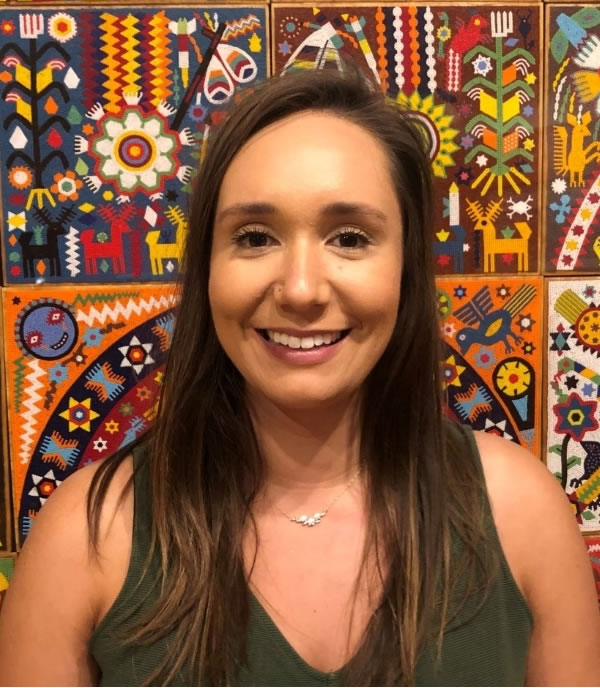B2F Cohort Corner: Nicole Perez

At the end of her time as a Bridge to Faculty (B2F) scholar, Nicole Perez is sharing her insights and experiences with the program.
Perez is a member of the 2021 B2F cohort in Medical Education.
What motivated you to apply for the B2F Program?
After graduating with a PhD in sociology, I started as a postdoc in 2019 in the UIC Office for Undergraduate Affairs and Academic Programs. While doing institutional research and working under Susan Farruggia (currently vice chancellor for assessment and planning at UIC), I learned about the new B2F program during my first year on campus. Since I enjoyed doing research at UIC as well as connected with their mission, I was interested in staying and pursing a tenure track assistant professor position. Throughout my educational journey—from high school through my PhD (and now B2F)—I have been a product of pathway programs that provide opportunities for minoritized students. Just to name and credit such programs—Chicano Latino Youth Leadership Project, Ronald E. McNair Scholars Program, Leadership Alliance, Faculty First-Look at New York University and now B2F. Without these intentional programs to make me feel like I belong in academia as a Latina first-generation college student, I would not be starting the tenure track this August.
What is the focus of your work in this program?
As a trained sociologist of education, race, ethnicity and immigration, I made a new transition to medical education during the B2F program. While the U.S. Latinx population has rapidly increased in the past 30 years, the number of Latinx physicians has not kept pace. It would take 92 years of a sustained doubling of the number of matriculating Latinx medical students in 2015 to correct the deficit of Latinx physicians from 2015. Thus, in the department of medical education, my work focuses on understanding transitions to and through medical school and training among minoritized students. Specifically, I am highlighting the assets and strengths minoritized medical students bring with them that have been historically overlooked and not valued. I received a UIC IRRPP faculty grant to pursue this project.
In what ways has this program impacted your work?
Without the support of B2F, I wouldn’t have had the opportunity to consider and pursue medical education. While I knew about the B2F program, I was not familiar with the field of medical education. In a fortuitous encounter with Dr. Jorge Girotti, I was recruited to apply to the position. Oftentimes in graduate programs, we are trained very rigidly in our discipline and mentored to pursue professional opportunities aligned with our degree. Since medical education is interdisciplinary at its core, I learned through the B2F interviewing process the many ways I could contribute as a sociologist. I realized that my work and training as a race scholar was applicable and greatly needed in the field of medical education. And while risky at first and riddled with imposter syndrome in switching to a new field, the support and structure of B2F and mentorship (from Laura Hirshfield) has facilitated my success thus far.
What are your hopes for how you will take your experiences with the B2F Program into your future professional endeavors?
I am much more confident in starting the tenure track this August with the training, socialization and professionalization in medical education gained through the B2F program. My hopes for how I will take my B2F experiences into future professional endeavors is through mentoring and supporting future generations of minoritized scholars throughout academia. As a beneficiary of B2F and many other programs, I believe it’s my responsibility to give back and look towards scholars earlier in their educational and professional pathways to ensure they also have opportunities to belong.
In your opinion, what are the larger impacts of the B2F Program?
To my knowledge, UIC is leading efforts to diversifying academia—locally and nationally. The office of diversity and the B2F program have been backing up their institutional commitment to diversifying faculty across campus through on-going recruitment and programming. With every B2F cohort, UIC is benefiting from additional future faculty that will contribute to the advancement of scholarship and teaching which will enhance the educational experiences of the student body and local communities.
Action is long overdue to address the fact that faculty demographics do not match the demographics of students at colleges and universities that are termed as “minority-serving.” I believe that other institutions across the country should follow the model put forth by UIC if they are serious and committed to increasing minoritized faculty.